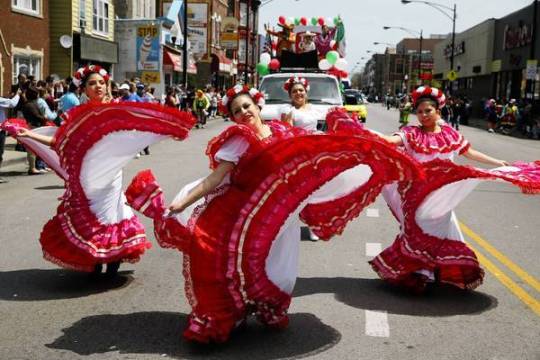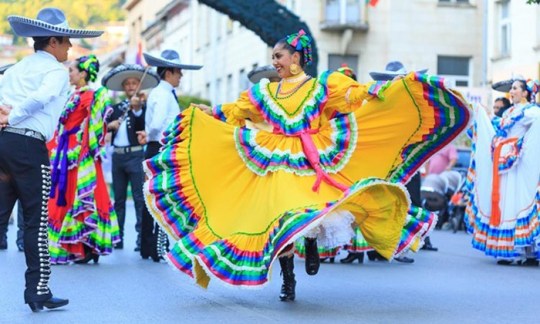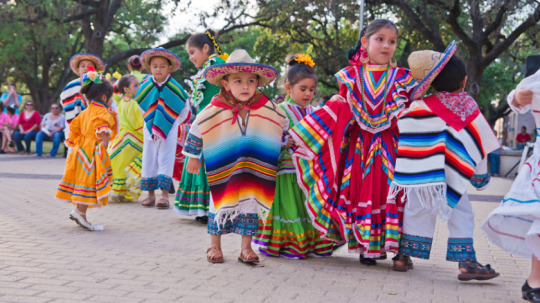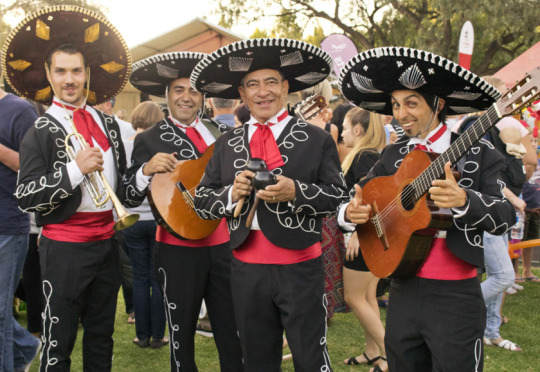#happy late hispanic heritage month el oh el
Text
My experience as a latine
Growing up, grappling with this identity was never easy. My family was all darker than me, but treated me as like them. I was taught to make tortillas by my tíabuela and played in her living room with my many cousins on the weekends. But, on Monday when i went to my -primarily white- school and tried to tell them about my weekend and my time with family, I was made fun of. My classmates would put on an accent and make fun of me, tell me I was too white to be Mexican. And I believed them.
When I talk to my mom about our heritage, she doesn't even know where to stand. She doesn't feel comfortable calling either of us real Mexicans, saying we are too white and are drowning out other's voices. That we don't have the same experiences and could never place ourselves with our family. My grandpa never wanted to be hispanic. His parents were illegal immigrants, and he had to take care of the whole family. He assimilated, speaking english, forgetting Spanish and never learning Purépechan where he could stay away from it. He refused to teach me Spanish when I was a baby and now I can barely speak it. I was told to not call him Mí Abuelo. My mom and I have had to reteach ourselves our culture and learn from further removed family.
In high school , most of my friends were also hispanic. But, we were diverse in our ways. Some of us "looked" more hispanic, but lost their culture. Some of us didn't "look" hispanic, but were deep in the culture, etc. I spoke to all of them, and no matter how deep our conversations got, I still felt less hispanic than any of them. It felt like they all had a step up on me, even if they didn't.
I am now in college. It is hard to feel connected to my culture when I'm so far away from the people who keep me dearly in their hearts. But, my mom brings me my sopita y pollo, grabs some tamales on her way to visit me. I work to remember who I am. But, I am not progressing in my hispanic identity. But, I am having new experiences. In fact, it's one of these that sparked me to write this.
I am on the diversity coalition exec board at my college. I was doing work with my president and advisor, who are both hispanic and black. We started talking about identity and ethnicity and I brought up that I am Mexican, and one of them asks my ethnicity and then goes "Oh, so you're White passing?" Then, to relate to me mentioned how they both identify as Black passing.
And I froze. Usually, when I am having conversations with people of color, I tend to step back and let them speak. Their voices matter more than mine, and I don't expect to be taken seriously for my ethnicity due to how I look. So to be told that it is important that I am this, they are similar, and that they see it? It is a completely new feeling. Maybe I can be taken seriously as someone who is hispanic. It made me feel seen.
So, now I need to figure out what to do with this new information, I guess. I'm sure that conversation seemed insignificant to both of them, but this is big to me. I have so much more to find out, but for now, I can happily say I am a hispanic person. And I am proud of that. I am allowed to be proud of that.
#important stuff#serious business#hispanic#mexican#latine#happy late hispanic heritage month el oh el
5 notes
·
View notes
Text
¡Hola Amigos! Hoy es Sábado, el Cinco de Mayo, y … what? You didn’t understand … oh … okay … back to Inglés then. Today, for those who haven’t yet looked at the calendar, is May 5th, or Cinco de Mayo. Though Cinco de Mayo is a commemoration of the Battle of Puebla in 1862, it is more widely and vigorously celebrated in the U.S. than in Mexico!
The History

In 1861, Benito Juárez—a lawyer and member of the indigenous Zapotec tribe—was elected president of Mexico. At the time, the country was in financial ruin after years of internal strife, and the new president was forced to default on debt payments to European governments.
In response, France, Britain and Spain sent naval forces to Veracruz, Mexico, demanding repayment. Britain and Spain negotiated with Mexico and withdrew their forces.
France, however, ruled by Napoleon III, decided to use the opportunity to carve an empire out of Mexican territory. Late in 1861, a well-armed French fleet stormed Veracruz, landing a large force of troops and driving President Juárez and his government into retreat.
Certain that success would come swiftly, 6,000 French troops under General Charles Latrille de Lorencez set out to attack Puebla de Los Angeles, a small town in east-central Mexico. From his new headquarters in the north, Juárez rounded up a ragtag force of 2,000 loyal men—many of them either indigenous Mexicans or of mixed ancestry—and sent them to Puebla.
The vastly outnumbered and poorly supplied Mexicans, led by Texas-born General Ignacio Zaragoza, fortified the town and prepared for the French assault. On May 5, 1862, Lorencez gathered his army—supported by heavy artillery—before the city of Puebla and led an assault.
The battle lasted from daybreak to early evening, and when the French finally retreated they had lost nearly 500 soldiers. Fewer than 100 Mexicans had been killed in the clash.
Although not a major strategic win in the overall war against the French, Zaragoza’s success at the Battle of Puebla on May 5 represented a great symbolic victory for the Mexican government and bolstered the resistance movement. In 1867—thanks in part to military support and political pressure from the United States, which was finally in a position to aid its besieged neighbor after the end of the Civil War—France finally withdrew.
Sadly, General Zaragoza died of typhoid four months after the Battle of Puebla.
The Celebration:



In Mexico, Cinco de Mayo is primarily observed in the state of Puebla, where Zaragoza’s unlikely victory occurred, although other parts of the country also take part in the celebration. Traditions include military parades, reenactments of the Battle of Puebla and other festive events. For many Mexicans, however, May 5 is a day like any other: It is not a federal holiday, so offices, banks and stores remain open.

In the United States, however, Cinco de Mayo has increasingly become a celebration of Mexican culture and heritage. Many confuse it with Mexican Independence Day, which is actually on September 16th. Cinco de Mayo in the states is often celebrated with parades, parties, mariachi music, Mexican folk dancing and traditional foods. The largest celebrations are in Los Angeles, Chicago and Houston.

For the past 16 years, until last year, the White House sponsored festivities and used Cinco de Mayo to connect with the Hispanic community, inviting Cabinet members, Latino celebrities and Mexican Embassy officials to the White House. That ended last year under … well, you-know-who.
So, if you like Mexican food (and seriously, who doesn’t???) then why not pay a visit to your favourite Mexican restaurant as a part of your weekend festivities today! Have a fun and happy weekend whatever you do, dear friends.

Saturday Surprise — Cinco de Mayo ¡Hola Amigos! Hoy es Sábado, el Cinco de Mayo, y … what? You didn’t understand … oh … okay … back to Inglés then.
#Battle of Puebla 1862#Benito Juárez#Cinco de Mayo#Ignacio Zaragoza#Mariachi#May 5th#Mexican history#piñata#tequila#Veracruz#White House celebration
0 notes